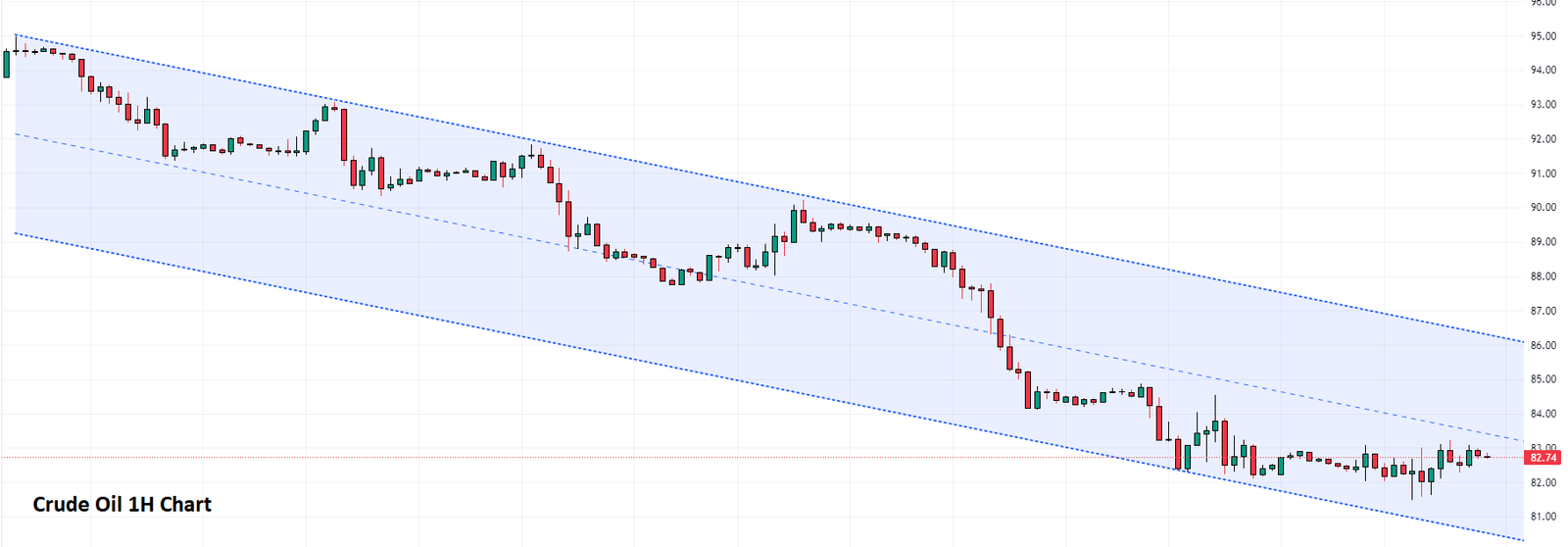FxNews—The world’s economy might face new problems because of recent fighting in the Middle East. This happens while banks worldwide deal with the latest inflation trends and a possible drop in economic confidence. These problems are coming up just as people are starting to feel hopeful about controlling the price increases caused by the pandemic and Russia’s invasion of Ukraine in 2022.
Oil Market Analysis – Middle East Unrest Risks Economy
The sudden violence in Israel, where hundreds of people have died as Hamas fighters attacked from their base in Gaza and Israel fought back hard, has made people worried about a bigger conflict in the Middle East. This adds to the global instability that Russia’s military actions started about a year and a half ago.
Depending on the length, intensity, and widespreadness of the conflict in the region, it might take some time to see all its effects.
During a presentation to the National Association for Business Economics, Agustin Carstens, the General Manager of the Bank for International Settlements, said it’s too early to tell what might happen. However, we might see immediate effects on the oil and stock markets.
This war could bring new challenges to a world economy that is already slowing down. It could also be a problem for U.S. markets, which are still trying to adjust to the idea that the Federal Reserve might keep interest rates high for longer than many investors thought.

Carl Tannenbaum, the Chief Economist with Northern Trust, said that any economic uncertainty could put people off making decisions, increase risk premiums, and make people worried about future oil prices, especially because of the region where this is happening.
He also said that people who watch the markets will pay close attention to how things develop and whether this latest outbreak of violence in the Middle East, a region that has had instability for a long time, takes a different direction.
Oil Technical Analysis: A Shift in Focus
This week, leaders from around the world are meeting in Morocco. They’re part of the International Monetary Fund and World Bank and discuss the world’s economy. The economy is still changing because of the pandemic and trade tensions, which are big topics for the meeting.
Central banks have a problem. The Middle East is fighting, and this could cause new inflation pressures. The Middle East has big oil producers like Iran and Saudi Arabia and important shipping lanes through the Gulf of Suez.
Officials at the Federal Reserve (the Fed) have said that high energy prices could risk their plan to ease inflation slowly. They also think the U.S. economy will likely avoid a recession unless something unexpected happens.
Fed Faces Tough Choices Amid Oil Price Surge Fears
Now that fighting is occurring in a region that produces a lot of oil, traders and major players like Iran and Saudi Arabia are being closely watched. The trading in bond and stock markets in the next few days will show how markets think this will affect things.
Karim Basta, the chief economist at III Capital Management, said the conflict could raise oil prices and risk inflation and growth. This means the Fed has to decide whether higher prices or slower growth are more worrying.
Fed Monitors Rising U.S. Bond Yields Amid Inflation Fears
Officials at the Fed have been watching a recent increase in U.S. Treasury bond yields. They’re looking for signs that investors may have pushed financial conditions too far to cool inflation, risking a big economic slowdown. If the war between Israel and Hamas makes people more worried about the world’s economy, it could change this trend. Money might rush toward U.S. Treasury bonds, which are seen as safe during potential crises.
While falling market interest rates might usually be seen as a possible source of renewed inflation (encouraging consumers and businesses to borrow and spend), this time might be different. The risks to the economy of a new regional war could become the focus.